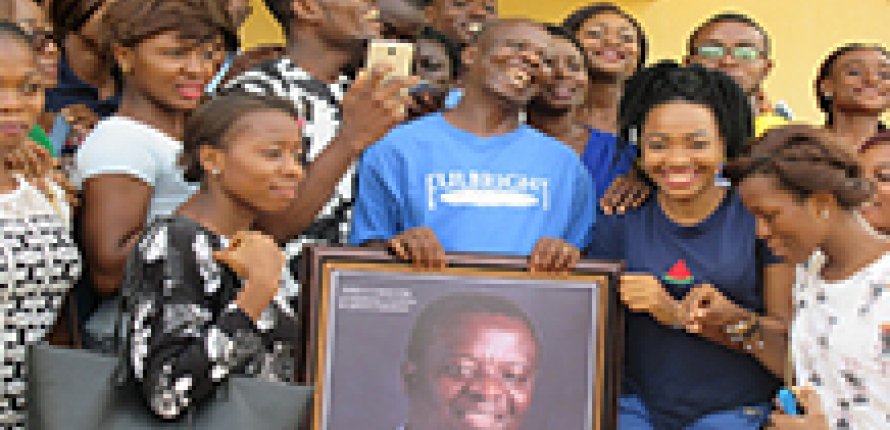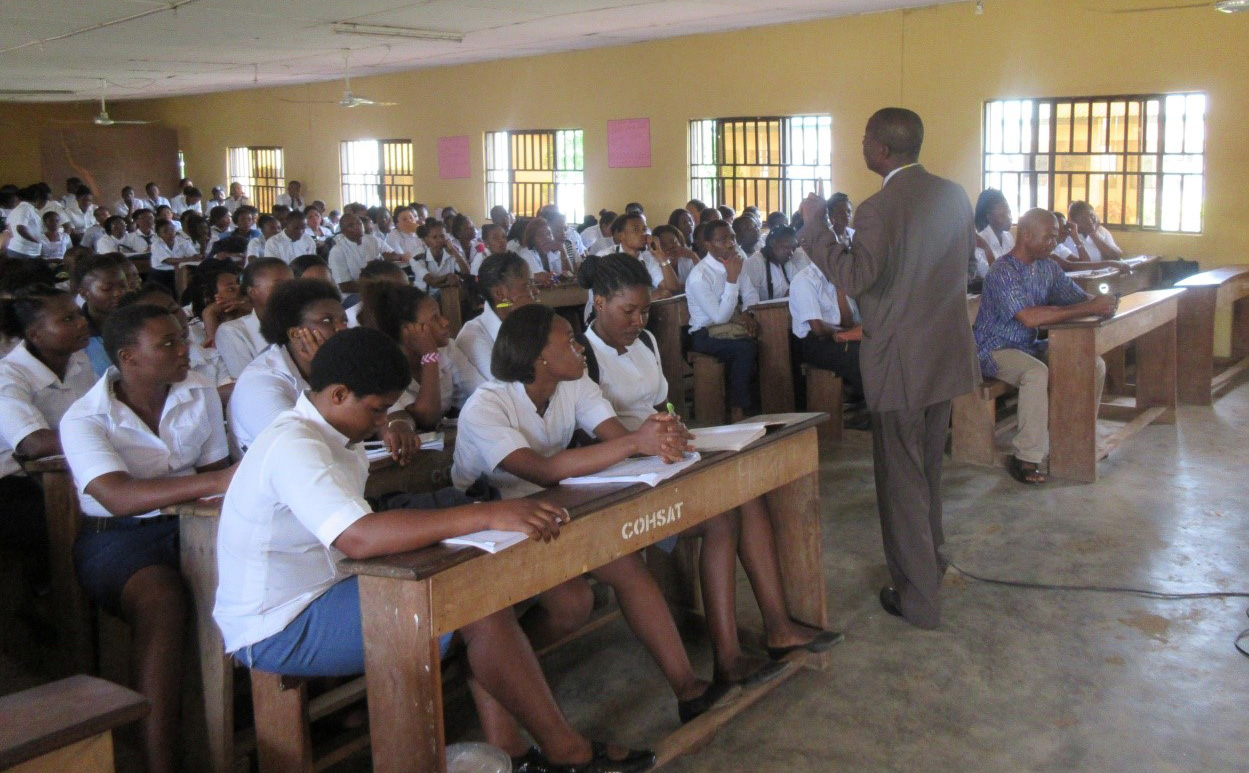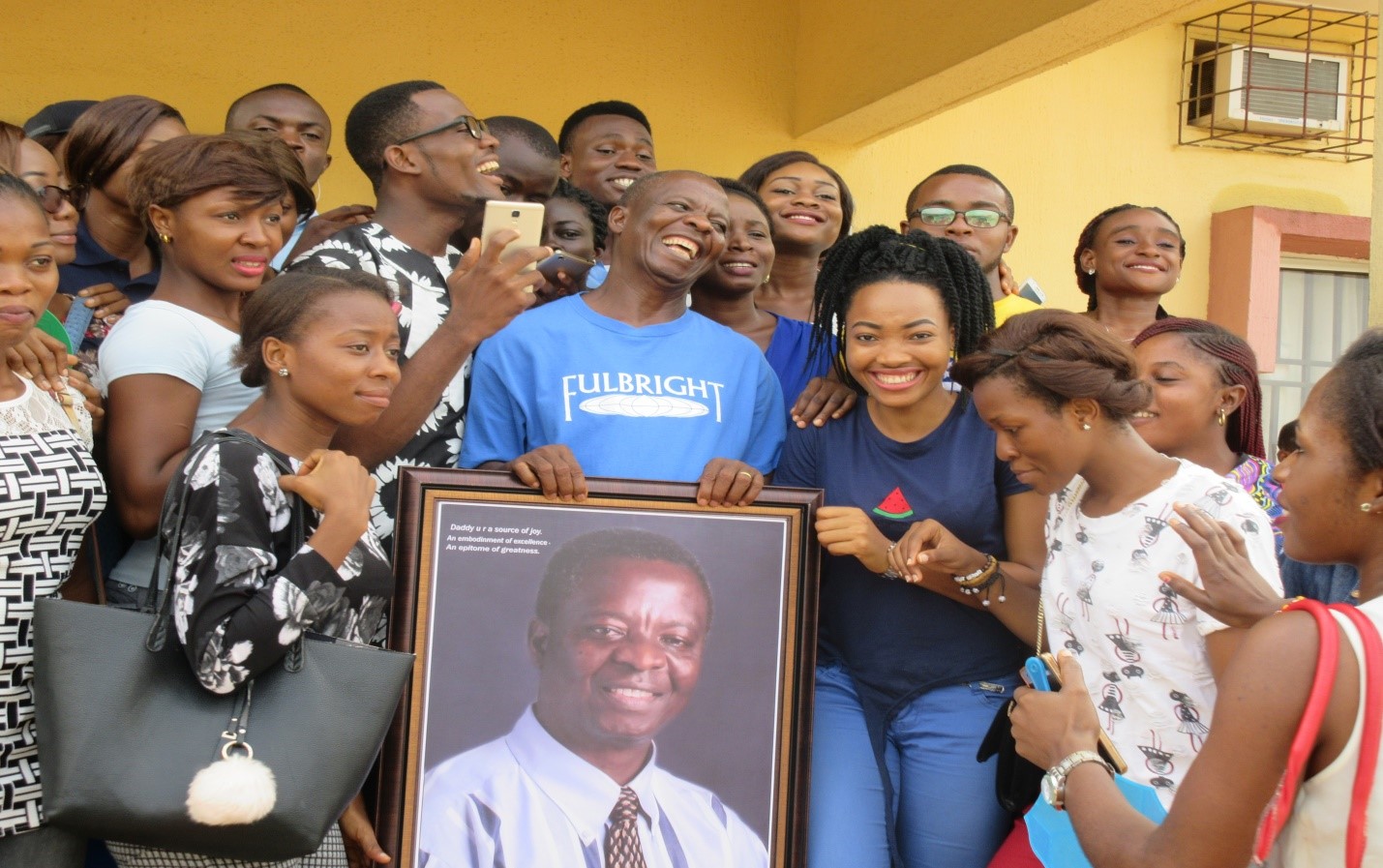Opening New Doors with a Fulbright to Nigeria

Raymond Chimezie, Faculty of Public Health, Los Angeles City College
2016-2017 Fulbright U.S. Scholar to Nigeria
Fulbright: Impact and Why Nigeria?
Fulbright opened a new chapter in my life, generating momentum for my career as a teacher, researcher, and practitioner in public health. The Fulbright U.S. Scholar award was an opportunity to explore the world and to use my education and experiences from the United States to contribute to positive social change and impact the lives of students, faculty, and others in Nigeria. My award was for teaching and research at the Federal University of Technology, Owerri (FUTO). As a scholar and researcher, it was an opportunity to interact with students, faculty, and the general public and to gain a deeper understanding of how people’s health and wellbeing are impacted by Nigeria’s social, economic, and political environments.
I chose Nigeria because of its low life-expectancy rate and historically poor health system performance according to the World Health Organization. I also wanted an opportunity to disseminate the results of my previous original research on primary healthcare delivery in Nigeria.
The Quest, Excitement, & Hesitations
I had wanted to go overseas to work, research, and explore different healthcare systems. Then, I learned about the Fulbright Scholar program through my colleagues on social media. My initial application for a Fulbright award was not successful, but I did not give up. After a critical review of my research and teaching interests by my mentors, I revised my proposal and applied again. This time I was successful. I was excited to receive my Fulbright U.S. Scholar award so that I could establish scholastic and professional linkages with students, faculty, and people at the Federal University of Technology, Owerri, as well as with organizations across Nigeria. On the other hand, the award brought hesitations with it as well. It wasn’t possible to travel with my wife because of work and her graduate studies. Also, my children were off to their respective universities and there was no one to keep my wife company at home. Leaving her alone in the house was heart-breaking to me and our children. However, she picked up courage to stay alone since my trip would be a beneficial one, but she requested that we check on her frequently until she adapted to the situation.

The Job, Challenges, and Prospects in Nigeria
I arrived in Nigeria in August, the heart of rainy season. Constant rainfall, bad roads, and flooding made movement difficult. When I arrived at the university, I reported to the Head of the Department of Public Health, who welcomed and assigned me with responsibilities. My initial assignment was to teach Advanced Disease Control and Surveillance to doctoral students. I was also assigned to mentor students, supervise theses and projects, and teach three other courses in public health to undergraduate students. I also volunteered to teach Research Methods to 500-level students. I had a full faculty teaching load, but it was exciting as it gave me more opportunities to interact and bond with students for a better understanding of their learning needs and challenges. Also, I served in the various committees in the department of public health. Despite the heavy teaching workload, I made time to answer questions from students and faculty about American values, social life, the educational system, and study opportunities.
Additionally, I reached out to the wider community through lectures to raise awareness about public health issues and the challenges facing public health professionals. I presented at five colleges/universities, a rural community, a women’s organization, and a high school. Specifically, at the Federal University of Technology, Owerri, I shared my doctoral research findings, while at other colleges/universities I spoke on health labor force readiness, issues in community health access, and health promotion strategies. At the high school, I delivered a lecture on behavioral health, while I spoke on stroke education and awareness to the FUTO Women Association.

Conducting Research and Creating Institutional Linkages
To initiate research collaborations, I invited a faculty member in the department of public health to participate in the research on: Potentials for Introducing Advanced Nursing Practice in the Nigeria Primary Healthcare Delivery System. Also, I engaged some students in the department of public health to assist in the data collection process. I attended public lectures in the university and used every opportunity to discuss my research interest and areas of collaboration. Through conducting my research, I gained more insight into issues impacting primary healthcare delivery and doctor-nurse professional relationships in healthcare delivery. I was able to get to know some doctors and nurses personally and also had the opportunity to explore the conditions of some of the healthcare facilities in Imo State of Nigeria. Also, I interacted with patients seeking care at the public health centers. It was clear from this interaction that many patients were frustrated and disappointed in the system because of their inabilities to see a physician, pay for medications, and/or receive appropriate care from the health facilities in the state. Some also complained of lack of order in the system as people who are influential jump the queue for services.

Exploring Culture, Tradition, and Social Life
Nigerians love social gatherings. They are very formal at such events and gorgeously dressed in order to be recognized according to their traditional, religious, or academic accomplishments. Social gatherings were opportunities for interactions and social networking. Events that showcase culture, tradition, and social life in Nigeria include traditional and Christian marriage ceremonies, dances, burials, and naming ceremonies.
My Fulbright experience in Nigeria concluded with mixed feelings. I was happy because I was returning to my family, had new students as mentees, faculty as scholar-partners, and a new community of friends at the university. But, for the Nigerian students and faculty, it was a moment of sadness. Many of them expressed delight in having me in the department and wished that I could stay longer. Amidst the sadness and tears of my departure, we still had happy moments of picture taking, smiles, hugs, or warm handshakes. Students appreciated the difference I had made in their lives. I respected and listened to them, facilitated and involved them in learning, and always challenged them to construct and share knowledge. I helped them develop passion for public health and encouraged them to use the power and prestige of their education to challenge population health issues through partnership building.
I am very thankful to United States Department of State’s Bureau of Educational and Cultural Affairs, the Council for International Exchange of Scholars, and all other partners that support and manage the Fulbright U.S. Scholar program. The Fulbright Program’s efforts are yielding fruit worldwide.
